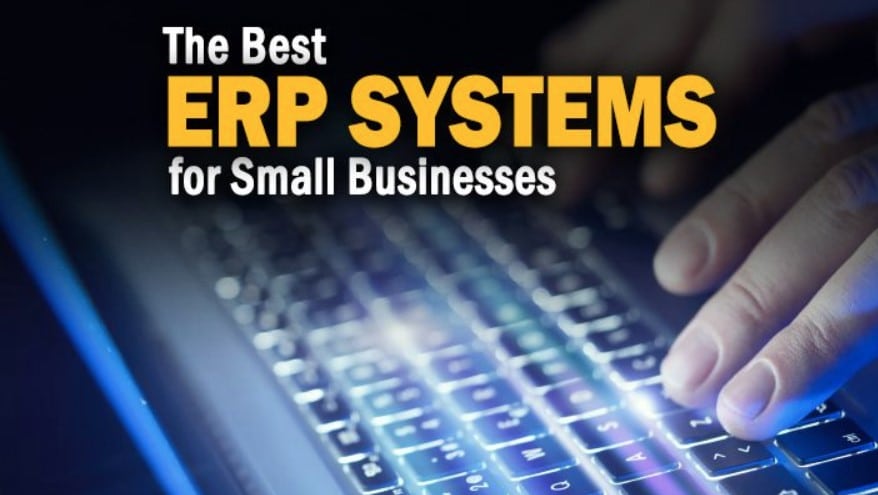Enterprise Resource Planning (ERP) has long been associated with large corporations streamlining their complex operations. However, the benefits of ERP are not exclusive to big players in the business arena.
Small businesses can also leverage ERP systems to enhance efficiency, boost productivity, and drive growth. In this article, we will explore the world of ERP tailored for small businesses, understanding its nuances, benefits, challenges, and the key factors to consider in the implementation process.

Understanding ERP for Small Business
What is ERP?
Enterprise Resource Planning (ERP) is a comprehensive software solution designed to integrate and manage core business processes. For small businesses, ERP serves as a centralized hub that streamlines various functions, including finance, human resources, inventory management, and customer relations.
Tailoring ERP for Small-Scale Operations
One size does not fit all, especially in the realm of ERP. Small businesses require tailored solutions that cater to their specific needs and challenges. Customization options ensure that the ERP system aligns seamlessly with the business structure and goals.
Benefits of Implementing ERP for Small Businesses
Enhanced Efficiency and Productivity
One of the primary advantages of ERP is its ability to automate routine tasks and facilitate smooth information flow. This results in increased operational efficiency, allowing small businesses to do more with limited resources.
Improved Decision-Making Processes
Access to real-time data and analytics empowers small business owners and managers to make informed decisions swiftly. ERP provides a holistic view of the business, aiding in strategic planning and execution.
Cost Savings and Resource Optimization
Contrary to the misconception that ERP is a costly investment, the long-term benefits outweigh the initial expenses. Small businesses witness cost savings through reduced manual errors, improved resource allocation, and streamlined processes.
Challenges in Implementing ERP for Small Businesses
Cost Considerations
While the ROI of ERP is substantial, small businesses may face initial budget constraints. Careful financial planning and exploring affordable ERP solutions can mitigate this challenge.
Integration Issues
Integrating ERP with existing systems can be complex. It’s crucial to choose a solution that seamlessly integrates with the current technological infrastructure.
Employee Training Hurdles
Adapting to a new ERP system requires employee training. Resistance to change and a learning curve can pose challenges, emphasizing the need for a robust training program.
Choosing the Right ERP System
Factors to Consider in the Selection Process
Small businesses must consider factors such as scalability, customization options, vendor reputation, and ongoing support when selecting an ERP system.
Customization Options for Small Business Needs
A flexible ERP system allows small businesses to customize modules according to their unique requirements, ensuring a tailored solution that aligns with business goals.
Implementation Process
Step-by-Step Guide to Introducing ERP
Implementing ERP is a phased process involving assessment, planning, customization, training, and ongoing support. A step-by-step approach ensures a smooth transition without disrupting daily operations.
Common Pitfalls to Avoid
Understanding common pitfalls, such as inadequate training or poor communication during the implementation phase, is crucial for success. Learn from the mistakes of others to navigate the ERP implementation journey more effectively.
Success Stories
Real-World Examples of Small Businesses Benefiting from ERP
Highlighting success stories from small businesses that have successfully implemented ERP provides tangible evidence of its transformative potential.
Lessons Learned from Their Experiences
Examining the experiences of these businesses sheds light on lessons learned, offering valuable insights for others considering ERP adoption.
Trends and Innovations in ERP for Small Businesses
Current Industry Developments
Staying abreast of industry trends ensures that small businesses choose ERP solutions that incorporate the latest technological advancements.
Future Possibilities for Small Business ERP Systems
Anticipating future developments in ERP helps small businesses make choices that align with long-term goals.
Measuring ROI in Small Business ERP
Strategies for Evaluating the Return on Investment
Small businesses need clear metrics to measure the success of their ERP implementation. Establishing key performance indicators (KPIs) and regularly assessing them ensures ongoing value.
Long-Term Advantages of ERP Implementation
Beyond immediate benefits, ERP provides long-term advantages, such as adaptability to market changes and scalability for future growth.
Security Concerns in Small Business ERP
Addressing Data Security and Privacy Issues
Data security is paramount. Small businesses must implement robust security measures to protect sensitive information and maintain customer trust.
Implementing Robust Security Measures
From encryption to access controls, a multi-layered security approach safeguards the integrity of data within the ERP system.
Customization and Scalability
Adapting ERP Systems to Evolving Business Needs
A dynamic business environment requires ERP systems that can adapt to changes. Scalability ensures that the ERP solution grows with the business.
Ensuring Scalability for Future Growth
Considering future expansion plans, small businesses must choose ERP systems that can scale without compromising performance.
User Experience in Small Business ERP
Importance of a User-Friendly Interface
A user-friendly interface is crucial for user adoption. Small businesses benefit from ERP systems that prioritize simplicity and ease of use.
Enhancing Employee Satisfaction Through ERP
Employee satisfaction is a key indicator of ERP success. Systems that prioritize user experience contribute to a positive work environment.
Comparing ERP Solutions for Small Businesses
Overview of Popular ERP Options
Providing an overview of well-established ERP solutions helps small businesses make informed decisions based on their specific needs.
Comparative Analysis Based on Features and Affordability
Evaluating ERP solutions based on features and affordability ensures small businesses find the right balance between functionality and budget.
Tips for a Smooth Transition to ERP
Change Management Strategies
Addressing the human element is vital during an ERP transition. Effective change management strategies foster a positive attitude toward the new system.
Overcoming Resistance Within the Organization
Identifying and addressing resistance within the organization is crucial for successful ERP adoption. Open communication and addressing concerns proactively contribute to a smoother transition.
Conclusion
In conclusion, ERP for small businesses is not just a technological upgrade but a strategic investment in long-term success. By understanding the nuances, benefits, challenges, and key considerations, small businesses can embark on a transformative journey toward enhanced efficiency, informed decision-making, and sustainable growth.